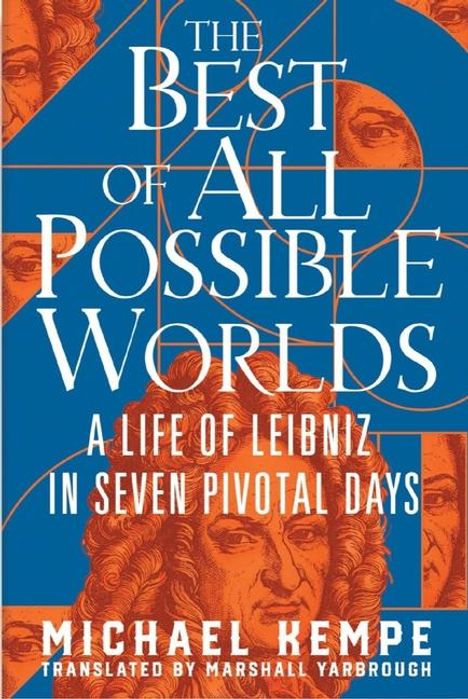Michael Kempe: The Best of All Possible Worlds, Gebunden
The Best of All Possible Worlds
- A Life of Leibniz in Seven Pivotal Days
(soweit verfügbar beim Lieferanten)
- Übersetzung:
- Marshall Yarbrough
- Verlag:
- W. W. Norton & Company, 11/2024
- Einband:
- Gebunden
- Sprache:
- Englisch
- ISBN-13:
- 9781324093947
- Artikelnummer:
- 11805479
- Umfang:
- 304 Seiten
- Gewicht:
- 476 g
- Maße:
- 236 x 157 mm
- Stärke:
- 25 mm
- Erscheinungstermin:
- 12.11.2024
- Hinweis
-
Achtung: Artikel ist nicht in deutscher Sprache!
Weitere Ausgaben von The Best of All Possible Worlds |
Preis |
|---|---|
| Buch, Gebunden, Englisch | EUR 26,58* |
Klappentext
Gottfried Wilhelm Leibniz (1646-1716) was the Benjamin Franklin of Europe, a "universal genius" who ranged across many fields and made breakthroughs in most of them. Leibniz invented calculus (independently from Isaac Newton), conceptualized the modern computer, and developed the famous thesis that the existing world is the best that God could have created.
In The Best of All Possible Worlds, historian and Leibniz expert Michael Kempe takes us on a journey into the mind and inventions of a man whose contributions are perhaps without parallel in human history. Structured around seven crucial days in Leibniz's life, Kempe's account allows us to observe him in the act of thinking and creating, and gives us a deeper understanding of his broad-reaching intellectual endeavors. On October 29, 1675, we find him in Paris, diligently working from his bed amid a sea of notes, and committing the integral symbol-the basis of his calculus-to paper. On April 17, 1703, Leibniz is in Berlin, writing a letter reporting that a Jesuit priest living in China has discovered how to use Leibniz's binary number system to decipher an ancient Chinese system of writing. One day in August 1714, Leibniz enjoys a Viennese coffee while drawing new connections among ontology and biology and mathematics.
The Best of All Possible Worlds transports us to an age defined by rational optimism and a belief in progress, and will endure as one of the few authoritative accounts of Leibniz's life available in English.
Biografie (Michael Kempe)
Michael Kempe ist Leiter der Leibniz-Forschungsstelle Hannover der Akademie der Wissenschaften zu Göttingen beim Leibniz-Archiv der Gottfried Wilhelm Leibniz Bibliothek und apl. Professor für Geschichte an der Universität Konstanz. Im Jahr 2000 promovierte er im Fach Geschichte mit einer wissenschaftsgeschichtlichen Arbeit zum Leibniz-Korrespondenten J. J. Scheuchzer und die Sintfluttheorie. Von 2002 bis 2006 war er wiss. Mitarbeiter am Max-Planck-Institut für Rechtsgeschichte, Frankfurt/M., 2009: Habilitation im Fach Geschichte, Universität Konstanz, mit einer globalhistorischen Arbeit über Piraterie und Völkerrecht in der frühen Neuzeit. Seine Forschungsschwerpunkte sind u.a. Wissenschaftsgeschichte zu Leibniz, Geschichte der internationalen Beziehungen und des Völkerrechts in der frühen Neuzeit, Geschichte der Naturwahrnehmung und der Naturkatastrophendeutung, Aufklärungsgeschichte, Globalgeschichte der Frühmoderne.
